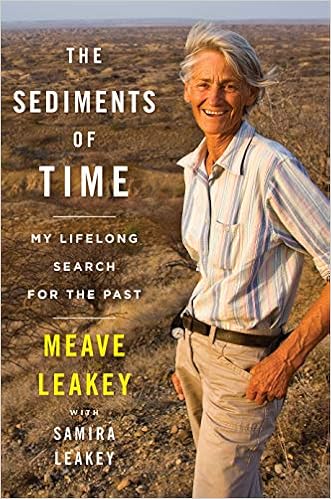Author of The Longing For Less and a contributor to The New Yorker and NYT Magazine, Kyle Chayka’s FILTERWORLD focuses on the history and investigation of living in a world ruled by algorithms, which profoundly determine and shape culture in both digital and physical spaces, leading to flat and frictionless experiences that are remaking human identity.
FILTERWORLD:
How Algorithms Flattened Culture
by Kyle Chayka
Doubleday, Fall 2023
(via Frances Goldin Literary)
 You’ve seen the smooth, uncanny artifacts: a blank, white café that looks like it could be located anywhere in the world; TikTok dance videos repeating in a dull echo; restaurant design and food plating which begs to be posted on Instagram; endlessly bingeable streaming television; influencers’ faces made up and surgically altered towards a certain photogenic ideal. While appearing in different mediums, these pieces of culture are characterized by a slick sameness. Rather than provoking us, they’re pleasing, ambient, frictionless.
You’ve seen the smooth, uncanny artifacts: a blank, white café that looks like it could be located anywhere in the world; TikTok dance videos repeating in a dull echo; restaurant design and food plating which begs to be posted on Instagram; endlessly bingeable streaming television; influencers’ faces made up and surgically altered towards a certain photogenic ideal. While appearing in different mediums, these pieces of culture are characterized by a slick sameness. Rather than provoking us, they’re pleasing, ambient, frictionless.
In this new book, Kyle Chayka argues that these seemingly disparate cultural phenomena all have been shaped by a similar force: the algorithms governing and filtering the content that appears on digital platforms. We increasingly live in a world where the culture we encounter is not simply curated by these algorithms, but in which algorithms profoundly determine and shape culture itself in both digital and physical spaces. Chayka names this new reality, of a world both inescapably mediated and changed by algorithmic filtration, “Filterworld”.
In FILTERWORLD, Chayka traces a brief history of how we arrived in this place—from the rise of the algorithm through the corresponding erosion of human curation and taste—before launching a penetrating exploration of the flat hallmarks of Filterworld byproducts and the way that algorithmically determined taste is fundamentally reshaping human identity. Ultimately a pointed critique of the frictionless culture of Filterworld, the book turns towards what we might do to escape and dismantle this numbing cycle.
Building on the popular criticism Kyle Chayka has published for both The New Yorker online and elsewhere, FILTERWORLD is the product of a career spent as one of our keenest observers of the intersection of technology and modern culture. While much has been written about the way that algorithms impact everything from news to policy, there has been no major book published on the impact of algorithms on culture.
FILTERWORLD will appeal strongly to readers of Jia Tolentino’s Trick Mirror and Jenny Odell’s How To Do Nothing: a book that not only seeks to give language to the slippery ways that technology is reshaping our lived experience, but also gives readers tools to imagine a world in which things could be otherwise.
Kyle Chayka is a freelance writer and critic whose work has appeared in the New York Times Magazine, New York Magazine, the New Republic, Rolling Stone, n+1, Vox, the Paris Review, and other publications. He has contributed chapters to Reading Pop Culture: A Portable Anthology and A Companion to Digital Art. Chayka is cofounder of Study Hall, a newsletter and digital community for journalists. He began his career as a visual art critic for Hyperallergic in Brooklyn, and now lives in Washington, D.C.

 Throughout history, new technologies have disrupted our capacity to make sense of the world, from the printing press to the telegraph, from radio to television. OUTRAGE MACHINE explores the serious recent disruption caused by social media, and how it has triggered an urgent society-wide crisis of trust. Drawing from deep historical context, as well as cutting-edge research, author, designer, and media researcher Tobias Rose-Stockwell shows how social media has bound us to an unprecedented outrage machine, training us to react rather than reflect, and attack rather than debate.
Throughout history, new technologies have disrupted our capacity to make sense of the world, from the printing press to the telegraph, from radio to television. OUTRAGE MACHINE explores the serious recent disruption caused by social media, and how it has triggered an urgent society-wide crisis of trust. Drawing from deep historical context, as well as cutting-edge research, author, designer, and media researcher Tobias Rose-Stockwell shows how social media has bound us to an unprecedented outrage machine, training us to react rather than reflect, and attack rather than debate.
 In HOW TRUST WORKS, Dr. Kim will explain the two most powerful determinants of trust (perceived competence and perceived integrity) and why those determinants can be weighted so unevenly when we are deciding whether to trust or forgive someone—or not. We as humans are bad at determining the trustworthiness of other people, and we are even worse at defending our own trustworthiness when it comes under fire. Yet despite this shortcoming, and the fact that we are all keenly aware of how important trust is in all of our personal and professional relationships, surprisingly little substantive research had been done on the topic before Dr. Kim began his inquiries. In fact, the majority of our institutional knowledge at the time seemed to rely almost entirely on case studies and other anecdotes. Dr. Kim was forced to develop his own set of rigorous scientific tools that would help him analyze how people interact with one another in the face of conflict.
In HOW TRUST WORKS, Dr. Kim will explain the two most powerful determinants of trust (perceived competence and perceived integrity) and why those determinants can be weighted so unevenly when we are deciding whether to trust or forgive someone—or not. We as humans are bad at determining the trustworthiness of other people, and we are even worse at defending our own trustworthiness when it comes under fire. Yet despite this shortcoming, and the fact that we are all keenly aware of how important trust is in all of our personal and professional relationships, surprisingly little substantive research had been done on the topic before Dr. Kim began his inquiries. In fact, the majority of our institutional knowledge at the time seemed to rely almost entirely on case studies and other anecdotes. Dr. Kim was forced to develop his own set of rigorous scientific tools that would help him analyze how people interact with one another in the face of conflict. In THE SEDIMENTS OF TIME, preeminent paleoanthropologist Meave Leakey brings us along on her remarkable journey to reveal the diversity of our early pre-human ancestors and how past climate change drove their evolution. She offers a fresh account of our past, as recent breakthroughs have allowed new analysis of her team’s fossil findings and vastly expanded our understanding of our ancestors. Meave’s own personal story is replete with drama, from thrilling discoveries on the shores of Lake Turkana to run-ins with armed herders and every manner of wildlife, to raising her children and supporting her renowned paleoanthropologist husband Richard Leakey’s ambitions amidst social and political strife in Kenya. When Richard needs a kidney, Meave provides him with hers, and when he asks her to assume the reins of their field expeditions after he loses both legs in a plane crash, the result of likely sabotage, Meave steps in. THE SEDIMENTS OF TIME is the summation of a lifetime of Meave Leakey’s efforts; it is a compelling picture of our human origins and climate change, as well as a high-stakes story of ambition, struggle, and hope.
In THE SEDIMENTS OF TIME, preeminent paleoanthropologist Meave Leakey brings us along on her remarkable journey to reveal the diversity of our early pre-human ancestors and how past climate change drove their evolution. She offers a fresh account of our past, as recent breakthroughs have allowed new analysis of her team’s fossil findings and vastly expanded our understanding of our ancestors. Meave’s own personal story is replete with drama, from thrilling discoveries on the shores of Lake Turkana to run-ins with armed herders and every manner of wildlife, to raising her children and supporting her renowned paleoanthropologist husband Richard Leakey’s ambitions amidst social and political strife in Kenya. When Richard needs a kidney, Meave provides him with hers, and when he asks her to assume the reins of their field expeditions after he loses both legs in a plane crash, the result of likely sabotage, Meave steps in. THE SEDIMENTS OF TIME is the summation of a lifetime of Meave Leakey’s efforts; it is a compelling picture of our human origins and climate change, as well as a high-stakes story of ambition, struggle, and hope.